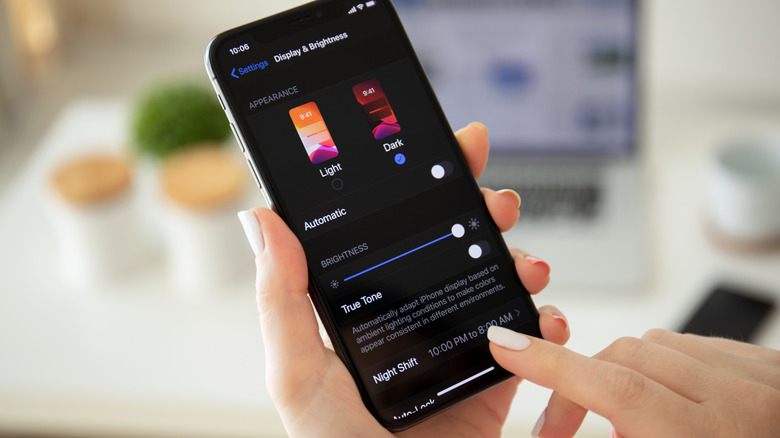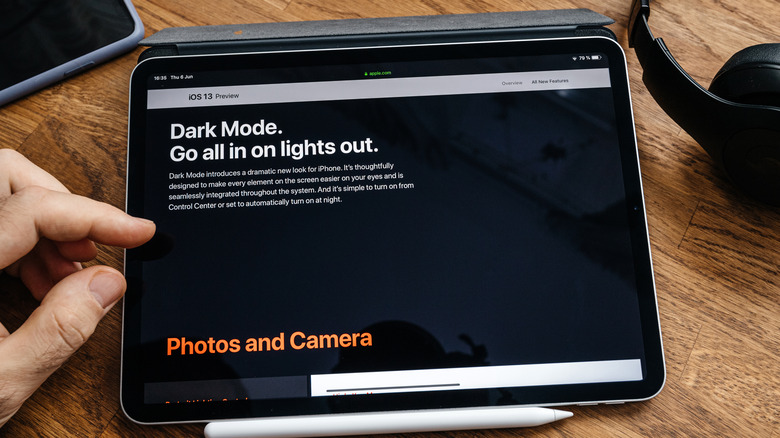How Dark Mode Affects Your Eyes
On most phones, tablets, and even computers now, you can opt to turn on "dark mode" settings, shifting most of the white on your screen to black. But what exactly is dark mode doing for your eyes and your brain? The benefits are still being debated, so if you're considering switching over to dark mode across your devices, here's what you need to know:
Dark mode — also referred to as night mode — reduces the amount of light coming from your device. Some experts argue that dark mode reduces eye strain, which is a common problem for people who spend most of their day in front of screens, but the science is mixed in terms of official data to back that claim up. In fact, some studies suggest otherwise and say it can add to eyestrain (via Forbes). And even if you use dark mode, blue light will still be emitted from your screen, so it's still worth wearing blue light blocking glasses if you're stressed about screen time.
When should you use dark mode?
There are a few obvious advantages to dark mode: If you like reading in bed while your partner goes to sleep, or you're sitting up with a baby at night, using your phone in dark mode will keep the room from lighting up. And from another practical standpoint, since your phone requires less light in dark mode, it may even boost your device's battery life (via Forbes).
Reading will always be easiest with black text on a white background, so if you're a big reader, RXOptical.com recommends sticking with a white background rather than switching to dark mode. If you do experience eye strain, though, that might be because your screen is too bright: Consider dulling the brightness so that your background isn't a bright white. But going dark can make reading much more difficult, especially for long blocks of text: Reading white letters on a black background will make your eyes more likely to blur the letters.
Ultimately, dark mode won't change our phone habits altogether: "I don't think the changing of the light will be enough to make us less involved in what our friends are doing or what Meghan Markle did to her hair," design psychologist Sally Augustin told Insider. Studies haven't shown any evidence that you'll be less inclined to scroll social media before bed, or to stop checking your phone while you should be focusing on work. That's going to take actual behavioral change and effort on your part.


